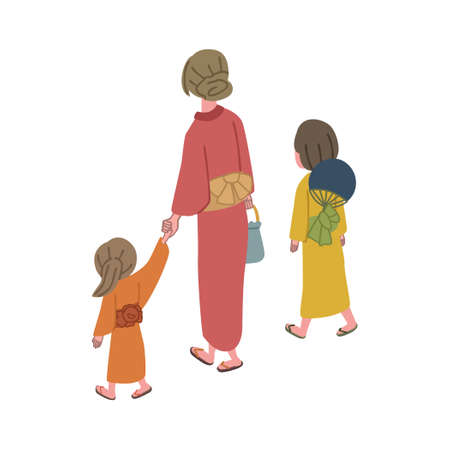1. Understanding Parenting Styles
When it comes to raising kids in the United States, most families follow one of several well-known parenting styles. Each style shapes how children learn to handle their emotions, build relationships, and face challenges as they grow. Let’s break down the four main types of parenting styles you’ll hear about in American culture: authoritative, authoritarian, permissive, and uninvolved.
What Are the Main Parenting Styles?
The table below gives you a quick overview of each style and what makes it unique:
| Parenting Style | Main Traits | Typical Parent Behaviors | Impact on Kids |
|---|---|---|---|
| Authoritative | Balanced, supportive, sets clear rules | Listens to kids, encourages independence, uses fair discipline | Confident, good at handling feelings, strong social skills |
| Authoritarian | Strict, high expectations, less warmth | Demands obedience, little room for discussion, lots of rules | Anxious, less confident, may struggle with social skills |
| Permissive | Warm, few rules or limits | Let’s kids make their own choices, rarely enforces rules | Lacks self-control, can be impulsive or struggle with boundaries |
| Uninvolved | Distant, little guidance or attention | Doesn’t set many rules or provide support | Low self-esteem, struggles with school and friendships |
Why Do Parenting Styles Matter?
The way parents interact with their children—whether they’re warm and involved or more hands-off—sets the stage for how kids learn to manage their emotions and connect with others. For example, authoritative parents who balance structure with encouragement often raise kids who are emotionally resilient and socially skilled. On the other hand, kids raised in more authoritarian or uninvolved homes might find it harder to express themselves or form healthy friendships.
Quick Example from Everyday Life:
If a child spills milk at dinner, an authoritative parent might calmly help clean up and talk about being careful next time. An authoritarian parent could get angry and scold the child harshly. A permissive parent might laugh it off without mentioning the mess. An uninvolved parent may not respond at all.
The Takeaway:
Your approach as a parent shapes your child’s confidence and ability to connect with others—kind of like choosing a character class in a game determines your strengths and weaknesses as you level up!
2. Emotional Development: Foundation for Life
Children’s emotional growth is like building a game character’s skills—it starts early and grows with the right support. Parenting styles play a huge role in how kids learn to handle their feelings, bounce back from challenges, and build healthy relationships. Let’s explore how different approaches set the stage for emotional resilience, self-regulation, and overall mental well-being.
How Parenting Styles Shape Emotional Skills
Kids aren’t born knowing how to deal with big emotions or tough days. They need guidance and practice—just like learning new levels in a game! Parents are their first coaches. Here’s how common parenting styles influence emotional development:
| Parenting Style | Emotional Resilience | Self-Regulation | Mental Well-Being |
|---|---|---|---|
| Authoritative | High—kids feel safe trying, failing, and trying again. | Strong—clear rules help kids manage impulses and emotions. | Positive—open communication builds confidence and happiness. |
| Authoritarian | Low—fear of mistakes can make kids anxious or withdrawn. | Poor—strictness may lead to outbursts or secretive behavior. | Mixed—can cause stress and lower self-esteem over time. |
| Permissive | Low—without boundaries, kids may struggle with setbacks. | Weak—lack of rules makes it hard to control emotions. | Uncertain—may feel loved but also insecure or overwhelmed. |
| Uninvolved | Very Low—kids often feel alone facing challenges. | Poor—little guidance means less practice managing feelings. | Negative—increased risk of anxiety or depression. |
The Power-Up of Emotional Resilience
When parents offer support, set clear expectations, and encourage honest conversations about feelings, kids develop emotional resilience—the ability to get back up after setbacks. This “power-up” helps them in school, friendships, sports, and even future careers!
Everyday Ways Parents Build Emotional Strength
- Name the Feeling: Help kids label what they’re feeling (“You seem frustrated—is that right?”).
- Tune In: Listen without judging when kids talk about their day or disappointments.
- Model Calm: Show your own ways to cool down or handle stress—kids learn by watching!
- Praise Effort: Cheer on progress, not just success (“I’m proud you kept trying even when it was hard.”).
- Create Routines: Predictable routines help kids feel safe and ready for whatever comes next.
Your Role as Guide on Their Journey
The way you respond to your child’s emotions shapes how they’ll face life’s challenges. By choosing a supportive approach, you’re giving them the foundation for lifelong emotional strength—and helping them unlock their best selves!

3. Social Skills: Connecting with Others
Social skills are like the secret powers kids use to make friends, talk things out, and work together in groups. The way parents guide their children at home plays a huge role in how these skills develop. Let’s take a closer look at how different parenting styles shape kids’ abilities to connect with others in everyday situations.
How Parenting Styles Shape Social Skills
| Parenting Style | Friendship Building | Communication | Conflict Resolution |
|---|---|---|---|
| Authoritative | Kids often feel confident making new friends because they’re used to open, respectful conversations at home. | They learn to express their feelings and listen to others, which helps them talk things out with peers. | These kids usually know how to compromise and find win-win solutions during disagreements. |
| Authoritarian | Might struggle with making friends or trusting others, as strict rules can make them shy or fearful of mistakes. | Often have trouble sharing thoughts openly, sometimes becoming quiet or defensive in group settings. | May avoid conflict or react strongly, since they’re used to top-down decision-making instead of teamwork. |
| Permissive | Eager to make friends but may have trouble respecting boundaries or taking turns. | Tend to be talkative but might not listen well to others’ viewpoints. | Can struggle with self-control during conflicts, sometimes giving in too easily or having big reactions. |
| Uninvolved | Might feel left out or unsure of how to join groups, since they don’t get much social guidance at home. | Could have difficulty understanding social cues or expressing themselves clearly. | Often lack strategies for resolving arguments, so they may avoid conflicts altogether or become frustrated quickly. |
The Power of Practice: Everyday Social Adventures
Imagine each day as a new “level” in a social game. When parents encourage playdates, family conversations, and teamwork at home, kids get lots of practice using their social superpowers. For example:
- Making Friends: Children who experience warm, supportive parenting are more likely to approach new classmates and join in group games confidently.
- Communicating Clearly: Kids from homes where open dialogue is encouraged tend to ask questions and share ideas without fear of being judged.
- Solving Conflicts: When parents model calm problem-solving, children are more likely to use words instead of tantrums when disagreements pop up on the playground or in class.
Diverse Settings: From School Hallways to Birthday Parties
The skills learned at home travel with kids wherever they go—whether it’s a soccer field, classroom, or neighborhood event. In diverse communities across the U.S., these social abilities help children connect with people from all backgrounds and cultures. Parents who offer support while setting clear boundaries give their kids the confidence and flexibility needed to navigate all sorts of social adventures!
4. Real-Life Examples from American Families
How Parenting Styles Show Up in Everyday Life
Understanding how different parenting styles impact children can feel a bit abstract until we see what it looks like in real life. Here, well explore common scenarios from American families that show the effects of parenting choices on kids emotional and social development.
Scenario 1: The Playground Challenge
| Parenting Style | What Happens at the Playground | Childs Response |
|---|---|---|
| Authoritative (Supportive & Firm) | A mom encourages her son to try the slide, cheers him on, but respects his choice if he feels nervous. | The child feels safe to try new things and trusts his feelings are valid. He may try the slide when ready. |
| Authoritarian (Strict & Demanding) | A dad insists his daughter go down the biggest slide, even though she’s scared, and scolds her for hesitating. | The child may feel anxious or resentful, and might avoid trying new things in the future out of fear. |
| Permissive (Lenient & Indulgent) | A parent lets their son do anything he wants, even if its unsafe, without guidance or boundaries. | The child may act impulsively and struggle to understand limits, sometimes leading to risky choices. |
| Uninvolved (Detached & Unresponsive) | A parent sits on their phone, not paying attention as their child plays unsupervised and alone. | The child might feel neglected and unsure about social cues, possibly withdrawing from others. |
Scenario 2: Handling a Bad Grade
| Parenting Style | Family Reaction at Home | Childs Emotional Growth |
|---|---|---|
| Authoritative | Parents talk with their daughter about what happened, help her come up with a study plan, and express belief in her abilities. | The child learns resilience and problem-solving, feeling supported to improve. |
| Authoritarian | Parents punish their son for the bad grade without asking why it happened. | The child may feel shame or frustration, focusing more on avoiding punishment than learning. |
| Permissive | Parents say grades don’t matter and don’t address the issue at all. | The child might miss opportunities to learn responsibility or how to overcome setbacks. |
| Uninvolved | No one notices or mentions the bad grade. | The child could feel invisible or unimportant, affecting self-esteem and motivation. |
Everyday Decisions Shape Lifelong Skills
The way parents respond in daily situations—like managing conflict with siblings or navigating friendships—teaches kids valuable lessons about emotions and relationships. For example:
- An authoritative parent might use family meetings to solve problems together, helping children learn communication skills.
- An authoritarian parent could demand obedience during conflicts, which may lead children to suppress their feelings or act out later.
- A permissive parent might let kids skip chores after arguments, making it harder for them to develop accountability.
- An uninvolved parent may not notice tension at all, leaving children unsure how to handle disagreements constructively.
Key Takeaway:
The small choices parents make every day—how they listen, guide, set limits, and connect—build a foundation for childrens emotional strength and social confidence. These real-life moments shape how kids grow up to handle challenges and relationships in the future.
5. Tips and Tools for Positive Parenting
Practical Ways to Support Your Child’s Growth
Positive parenting isn’t about being perfect—it’s about making everyday choices that help your child feel seen, heard, and valued. Here are easy-to-follow tips and playful strategies to encourage healthy emotional and social development in your child, all with a touch of American family culture.
Actionable Tips for Every Day
| Tip | How It Supports Development | American Family Example |
|---|---|---|
| Listen Actively | Builds trust and teaches communication skills | During dinner, ask open-ended questions like “What was the best part of your day?” and really listen to their answer. |
| Encourage Problem-Solving | Fosters independence and resilience | If siblings argue over a game, guide them to find their own solution rather than stepping in immediately. |
| Praise Effort, Not Just Results | Boosts self-esteem and motivation | Saying “I’m proud of how hard you worked on your project!” instead of just “Good job on the A.” |
| Model Empathy | Teaches compassion and social awareness | If someone cuts in line at the grocery store, explain calmly why patience matters and how everyone makes mistakes. |
| Create Family Rituals | Strengthens bonds and builds security | Have a weekly movie night or Sunday pancake breakfast where everyone pitches in—these moments matter! |
Playful Strategies for Learning Social Skills
- Role-Playing Games: Act out common social situations (like making new friends or sharing toys) so your child can practice what to say and do.
- Emotion Charades: Take turns showing different feelings with faces or body language—guessing helps kids recognize emotions in others.
- Gratitude Jars: As a family, write down things you’re thankful for on slips of paper, then read them together at the end of each week to foster positive thinking.
- Team Chores: Turn chores into teamwork games (who can pick up the most toys?) to teach cooperation while getting things done around the house.
- Cultural Celebrations: Celebrate national holidays or community events together; this helps children appreciate diversity and feel connected to their roots.
Troubleshooting: When Things Get Tough
- If your child is struggling socially, reach out to teachers or school counselors—they’re there to help!
- Remember that meltdowns are normal. Stay calm, acknowledge your child’s feelings (“I see you’re upset”), and offer comfort before solving the problem together.
- If you ever feel overwhelmed as a parent (and we all do!), connect with local parenting groups or trusted friends for support—you’re not alone on this journey.
Your Next Level Parenting Adventure Starts Now!
The magic of positive parenting is in small, consistent actions. By weaving these tips into your daily routines, you’ll help your child grow into a kind, confident, and emotionally healthy person—ready to take on the world, one playful moment at a time!
6. Embracing Growth: Navigating Challenges Together
Every family faces bumps in the road, especially when it comes to parenting styles and how they impact kids’ emotional and social development. The good news? These challenges are opportunities for everyone—parents and children alike—to learn, adapt, and grow together.
Common Challenges Parents Face
| Challenge | Example | Growth Opportunity |
|---|---|---|
| Different Parenting Styles at Home | One parent is more strict, the other is more laid-back | Model respectful communication and compromise for your child |
| Kids Struggling with Emotions | A child has frequent meltdowns or shuts down when upset | Practice naming emotions and healthy coping strategies together |
| Peer Pressure and Social Fears | A child feels left out or worried about fitting in at school | Role-play social situations and talk through solutions as a team |
| Balancing Independence and Support | A parent wants to protect, but the child wants more freedom | Set small goals for independence while staying available for support |
Building a Growth Mindset as a Family
A growth mindset means believing that abilities can improve with effort and practice. This attitude helps both parents and children handle mistakes without fear, keep trying after setbacks, and celebrate progress—even if it’s small.
How to Encourage a Growth Mindset at Home:
- Praise effort, not just results: Say things like “You worked really hard on that” instead of only “You’re so smart.”
- Share your own challenges: Let your child know when something is tough for you and how you cope or ask for help.
- Create safe spaces for mistakes: Remind your child (and yourself!) that messing up is part of learning.
- Set goals together: Work as a team to set small, achievable steps toward bigger dreams.
- Celebrate progress: Notice improvements, even if they seem minor. Progress over perfection!


